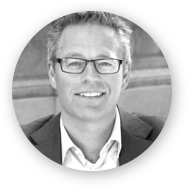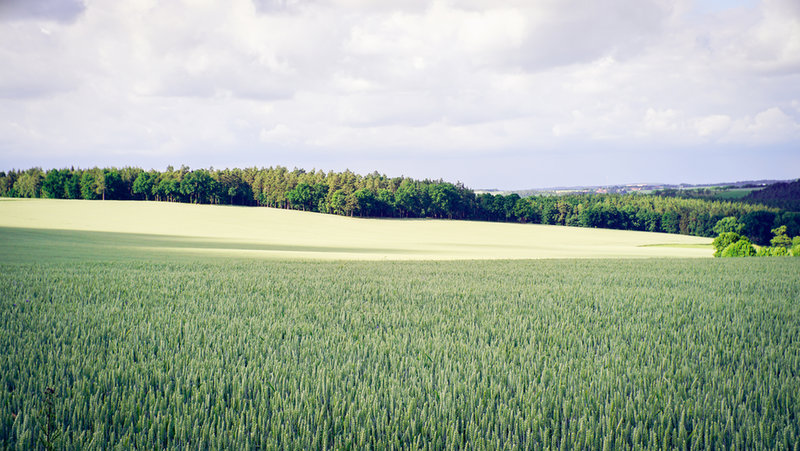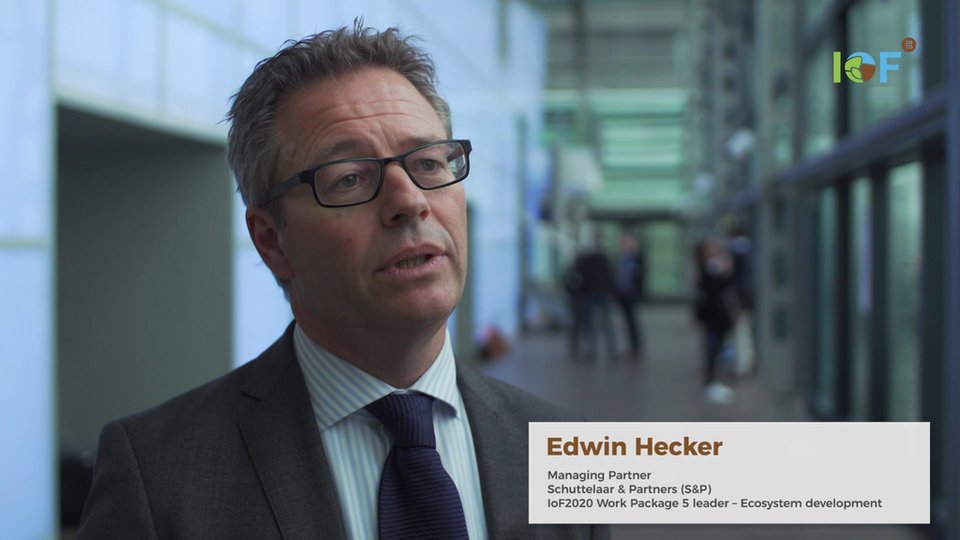INTERVIEW
Work package 5 – communication and dissemination leader Edwin Hecker is Managing Partner at Schuttelaar & Partners. Within IoF2020, he is responsible for the eco-system building strategy and oversees the project’s communications and knowledge dissemination activities. In this second newsletter, Edwin talks about the importance for the IoF2020 project to become a thriving ecosystem.

Edwin Hecker
Managing partner at Schuttelaar & Partners. IoF2020 workpackage 5 leader - Ecosystem building, communication and dissemination.
Managing Partner at Schuttelaar & Partners. IoF2020 work package 5 leader - Ecosystem building, communication and dissemination.
‘An ecosystem in nature is a self-sustaining system, which is exactly what we want to achieve within this project. The 70+ consortium partners ideally become a system of communities learning from each other. A system in which partnerships are formed to advance together. During the timeline of the project, but also beyond.’
According to Edwin, a thriving ecosystem is everything but a static structure. ‘Beyond our consortium, we involve other communities too. We’ve initiated contact with the European Innovation Partnership for Agriculture (EIP-Agri), for example, who now share information about IoF2020 in their network. We’ve also started a collaboration with the European Young Farmers Association (Ceja) to reach their 2 million members. And these are just the first steps.’
The importance of an eco-system
‘IoT technology is very complex. To reap the benefits, all parties in the food production chain need to cooperate much more closely than they do now. Not only in the chain from farm to consumer, but also around the farm: the service providers, the IT specialists, the contractors, etc. If a farmer invests in a new system, his suppliers need to be able to work with it too. The data from his self-steering tractor needs to be compatible with his own computer system, but is also valuable input for other partners in the chain. So, the increased connectivity that IoT technology brings, demands a close-knit network. That’s why a thriving eco-system, in which different parties find each other, share knowledge and work together on the development of the technology, is so important.’
Edwin stresses the importance of a sustainable eco-system that will continue to exist after the four year pilot. ‘The technology will continue to develop. To ensure that the eco-system will last after the project, we try to create win-win situations. Like in nature, connections that are beneficial to all parties involved.’
The uptake of digital technology
When asked why digitization advances relatively slowly in the agricultural world, Edwin indicates multiple reasons. ‘First, many companies in our food production chains are relatively small, compared to the actors in the transportation sector or in smart cities for example. Secondly, on average farmers in Europe didn’t grow up with digital technology. Still, robotic milking systems start to become common, some farmers work with drones and use machinery guidance applications to navigate their tractor more efficiently.’
In an emerging field, such as precision farming, often the standards aren’t set yet. ‘Farmers are flooded with a myriad of small companies offering technical solutions. Often these systems don’t work together well, which makes the farmer’s work more difficult instead of easier. Who's owner of the data is also an important question. That’s why the use-cases within the IoF2020 project are situated inside the production chain: at the farms, at the slaughterhouses and at the retailers. Interoperability is one of the main themes we’re working on.’
Grand societal challenges
According to Edwin, the IoT technology demonstrated and tested in the different use-cases, is part of the answer to solve the grand societal challenges as defined by the European Union. ‘Food waste, water consumption, CO2 emissions, pesticide and fertilizer use are pressing issues in our food supply system. IoT technology enables farmers to combat waste of inputs for example, which is why it’s also called precision farming. You can imagine the efficiency gain when only plants that actually need it, get water or fertiliser. This way of working enables a great advancement regarding CO2 emissions and the environment in general. It also enhances transparency, minimising losses in the whole production chain. For farmers, the efficiency gain translates directly into lower input cost and higher yields.’

Flexibility
‘The structure of IoF2020, allows us to use a tailor-made approach. We test the technology in different places under different circumstances. Farming is very much related to the specific conditions of a certain place: the soil and the weather in Italy cannot be compared to the conditions in Northern Europe for example. So, we need to design systems that can be adapted to these different circumstances and that are applicable to both small and large farms.’
IoF2020 helps to further the uptake of IoT technology in a very tangible way, says Edwin.
‘On the one hand, we move existing technology up in technology readiness level. Secondly, the use-cases demonstrate the added value in the real world, in the field. The end-users, the farmers themselves and all the other actors who will use the technology, are actively involved in this process.’ Some flexibility is also built into the project structure itself: ‘Next year we will have €5 million available in an open call, for additional use-cases to join the project.’
‘To accelerate innovation, you need to make novel technology practically applicable. True innovation fits the end-user’s needs. IoF2020 is built on this notion.’
Involving key players
‘Key players in this project range from farmers, contractors and suppliers to the IT professionals, public authorities and of course the consumer. All these stakeholders are important during the project, but the focus shifts. In the sowing stage, we focus on the first links in the agri-food chain: we involve farmers, IT professionals, and agricultural consultants to name a few. Later, towards the flowering and harvesting stage of the project, we will reach out actively to consumers. We already inform the European Commission (DG AGRI, DG CONNECT) on a regular basis.’ Face-to-face contact matters enormously, according to Edwin: ‘The stakeholder event we will organise next year is a good example of how we bring all parties together. Policy makers from all the member states, project partners, relevant networks and sector associations such as CEMA, Copa-Cogeca and Ceja will join.’

Towards a thriving eco-system

Edwin Hecker
IoF2020 Work package 5 leader
